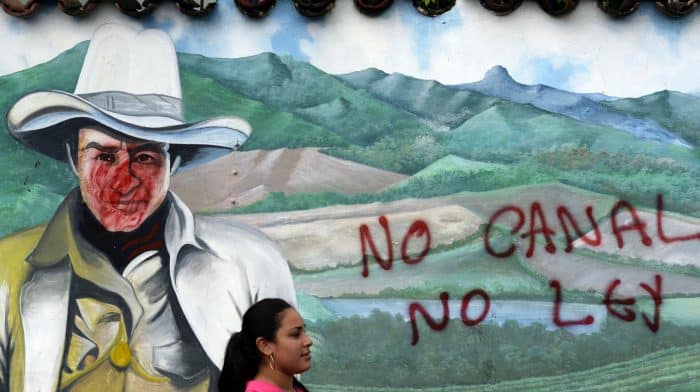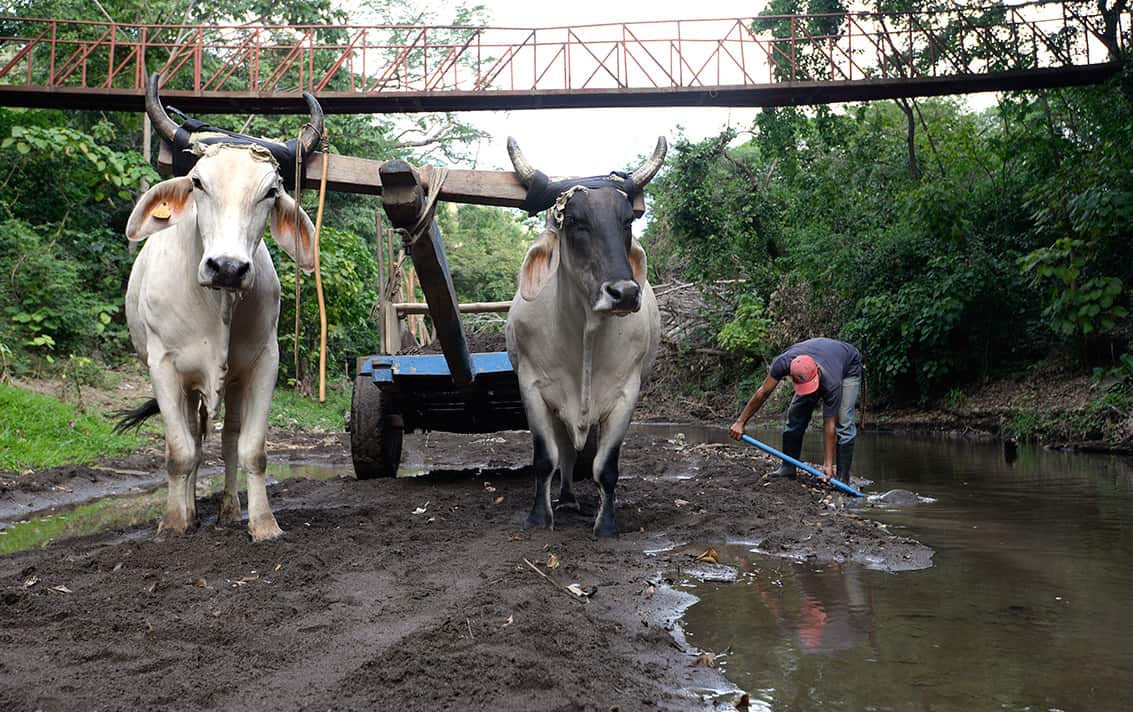It isn’t looking good for Chinese billionaire Wang Jing and his planned $50 billion Nicaragua canal project. New financial, social and environmental concerns have cast doubt on the feasibility of the proposed interoceanic canal, and construction has now been delayed until March. Doubts continue to linger over whether the 278-mile canal will be built at all.
Until June, Wang sat comfortably on the list of the world’s 200 richest people allowing him to pour more than $473 million of his own money into the canal project. But last week Bloomberg reported that Wang lost 84 percent of his fortune following major shifts in the Chinese stock market, making him the worst performing billionaire of 2015.
Executives with Wang’s canal development company, HKND Group, insist that the company has other financing plans, but experts say Wang’s turn in fortune likely will affect the canal project.
“Wang’s financial resources will impact how and whether the canal can and will be built,” Daniel Wagner, the head of Country Risk solution, a U.S.-based consulting company told The Guardian. “I would expect, given this year’s financial gyrations in China, that the government is also asking itself whether the canal is a viable proposition.”

One of the ‘most mismanaged environmental reviews’
Adding to Wang’s woes are the controversial results of the company’s environmental and social impact assessment, which left a number of unanswered questions about the canal’s feasibility and potential consequences.
ERM, the Britain-based environmental consultancy that conducted the ESIA, recommended further investigation into the seismic risk along the canal route and whether there is enough water to fill the canal. An executive summary of the 14-volume study was released to the public last week, and the Nicaraguan government announced that all the recommended studies must be undertaken, which will delay construction until March.
Along with recommending additional studies, ERM also pushed HKND to host more consultations with indigenous groups that would be displaced by the canal and raised questions about the company’s plans to pass the canal through Lake Nicaragua.
As the largest drinking water reservoir in Central America, Lake Nicaragua’s water quality is considered crucially important, and scientists have raised doubts about the lake’s ability to survive the dredging required for the canal.
“This is the third year in the row that we have had a drought [in Nicaragua]. Climate change will affect Nicaragua and people are already struggling to find water,” Jorge Huete-Pérez, director of the Molecular Biology Center at Central American University, told The Tico Times. “So if you ruin the lake that will be very negative for Nicaragua.”
For Huete-Pérez, an outspoken opponent of the canal project, the bigger problem with the assessment is not ERM’s conclusions, but the government’s failure to release the entire study for independent evaluation. The ESIA was completed in just a year and a half, and as of HKND’s official groundbreaking ceremony last December, no publicly known feasibility or impact studies had been completed.
“What they have released are the conclusions and as scientists having a discussion just on the results is not very appropriate,” he said. “From the beginning they have said that the results would be environmentally positive, and they planned to build it before they even had those results. This shows that [the studies] are just a formality because they have to attract investors.”
To date only four chapters of one of the study’s drafts has been independently reviewed. The review panel, assembled by Florida International University, pointed to 15 areas where they believed ERM did not have sufficient data to support their conclusions, referring to one part of the ESIA as “scientifically indefensible.” Sudeep Chandra, biology professor at the University of Nevada in Reno and a member of the review panel told news site Circle of Blue that it was one of the “most mismanaged environmental reviews” he had ever read.
ERM blamed HKND’s aggressive schedule for most of the panels concerns, and the additional studies that set to be completed by March will address some of these issues.
Related: Nicaragua official goes to Washington to justify massive canal project






